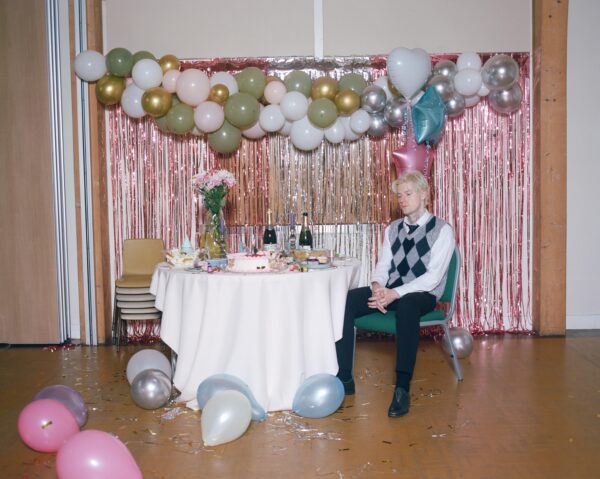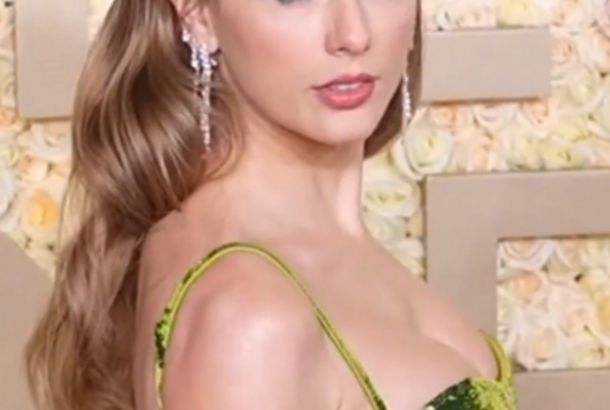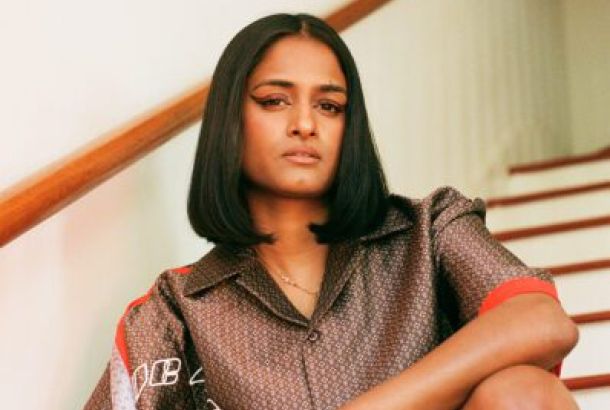Sundara Karma: “It’s difficult when you’re putting out music for a fanbase that kind of disagrees with the decisions you’ve made”
By Max Halton

When Sundara Karma arrived on the indie music scene in the mid-2010s, they did so in no uncertain terms. Their 2017 debut Youth is Only Ever Fun in Retrospect and a support slot alongside Two Door Cinema Club posited them as heirs apparent to the crown of dance-along indie guitar music.
The band performed live almost constantly from then on, through packed festival seasons, headlining UK and European tours. 2018’s higher concept Ulfilas’ Alphabet saw the band enjoy critical adoration. Sundara Karma seemed poised to lead indie music, at its more genre-bending cutting edge, into the next decade.
Five years on from their sophomore album, however, the band’s frontman and songwriter Oscar Pollock seems less than excited. “It’s difficult when you’re putting out music for a fanbase that kind of disagrees with the decisions you’ve made,” he tells me, sighing.
Pollock’s talking about the resoundingly mixed response to the band’s 2020 and 2022 EPs, Kill Me and Oblivion!, which veered away from the stylings of the first pair of albums towards a high-gloss hyperpop nihilism, written and produced with Rina Sawayama and Dorian Electra collaborator Clarence Clarity.
Better Luck Next Time is the band’s third release, and “for the sake of ultimately wanting to make music that resonates with people,” the band are leaving some of the sounds and sensibilities of their lockdown releases behind them and deliberately turning back to indie – a sentiment that Pollock jokes “would’ve been a good album name.”
Production-wise, they’re in safe hands as far as the indie establishment is concerned. Album number three was recorded at Liverpool’s Kempston Street Studios, Parr Street’s spiritual successor, with Rich Turvey, Blossoms’ long-time producer and the man behind The Coral and Courteeners’ most recent releases. Turvey is “an excellent musician, a great pianist, great guitarist,” and working with him “was really great, especially because we wanted to do the whole indie thing. Rich knows the lay of the land in regard to those sounds. He’s very familiar with all of that.”
“I’m very disappointed, I guess, by most indie bands [and] modern indie music nowadays… It’s kind of a commercialised branch of music for people who aren’t necessarily great at playing their instruments… I’m super disenfranchised by it.”
Pollocks’s eager, though, to make sure I know that there’s still a lot of him in the project as the band’s songwriter. He’s conscious that the influence of a producer can be overstated – especially when joining forces with someone with a reputation and sound as distinctive as Turveys.
“Mainly, it’s all premeditated,” he says of his writing process, “so when get into the studio, it’s all there.” Mostly, Pollock writes alone on Ableton, though the album’s fourth single ‘Miss Again’ was co-written with Spector’s Fred Macpherson. By the time his bandmates and Turvey are involved “all the ideas and parts are there musically,” with production mostly boiling down to tracking instruments and “refining sound selection.”
Turvey “had some great ideas for additions to songs that I had already written the core of,” Pollock says. The album track ‘Pain & Pleasure’ “was a slam dunk for him. I think he felt he could probably do that song with his eyes closed.” But Better Luck Next Time isn’t a top-to-bottom Turvey-masterminded indie album. “When it gets to the production phase it’s more of just a finishing, like a varnish. It’s not deeper than that.”
As we keep talking, it becomes obvious why Pollock is so keen to make it clear that Sundara Karma aren’t letting themselves be wholly reabsorbed back into the conventions of mainstream indie guitar music. “I’m very disappointed, I guess, by most indie bands [and] modern indie music nowadays,” especially by “more mainstream, Radio 1 adjacent indie. I mean, indie done best, it’s got to be really raw, honest, I think camp,” he really emphasises this word in particular, “and against the grain of some sort. But that just isn’t what it is now. It’s kind of a commercialised branch of music for people who aren’t necessarily great at playing their instruments. I don’t really know how…” He trails off in exasperation. “There’s a huge Spotification of indie music, and it’s all sort of overly saturated, and I’m not saying we’re not a part of that because at times I know we are, it’s– I don’t know. I’m super disenfranchised by it.”
“There is an element as well, specifically with indie guitar music, that’s so obsessed with structures of the past and tropes of the past that it’s painfully not progressive.”
Pollock tries to give indie as an institution the benefit of the doubt, caveating that maybe its flaws and neuroses are just more obvious to him, indie being the scene he came up through and now feels tied to. That said, there’s still something that doesn’t sit right with him. “I do think there is an element as well, specifically with indie guitar music, that’s so obsessed with structures of the past and tropes of the past that it’s painfully not progressive.”

Better Luck Next Time, then, lands in a tricky space for the band, caught between a disenfranchising genre and a desire to reconnect with the audience they built through it. Pollock thinks they’ve managed to thread the needle, though. Despite the hint of resignation when he tells me that “for what Sundara Karma do best, I think it’s probably indie music, right,” the band’s diversion through Kill Me and Oblivion! meant that when returning to indie tropes in the frantic guitar and unabashed sing-along bridge of ‘Baby Blue’ or the driving riff behind ‘Friends of Mine’, it “felt like a fresh palette, revisiting it… Because there’s been quite a departure in the past, it felt refreshing and new.”
Even if these tropes feel new, though, he’s audibly most excited by the moments on the album that depart from straightforward indie guitar music. “You’ve got to be somewhat unorthodox, y’know, even in trying to do something as deliberate as indie,” and the album’s penultimate track, ‘Okay I’m Lonely’ is the project’s shining example. “It was completely written outside of the studio, actually. I produced that with other friends, Rich didn’t produce that one. In fact Clarence Clarity who did the Kill Me EP and Oblivion! had a part to play in that. [The DNA of the EPs] did make its way onto the album, which is really great.”
“My tastes and interests in music are so varied. I think in the past I’ve always felt I’ve had to try and pack them into one project, but I think I’ve learnt over recent years that it doesn’t have to be that.”
It’s this integration of new external influences that holds the key not just to the album but to the future of indie for Oscar. Carving out a space not just for new sounds, in ‘Okay I’m Lonely’, but new stories, in songs like ‘Sounds Good To Me’, was “an important part of doing this for [him] from the get-go.” Interested more in what lies beyond indie recently, Pollock hasn’t necessarily kept up with moves that local scenes like Manchester’s have made towards the genre-agnostic, inclusive, and boundary pushing, but he’s glad they’re being made. “That’s good! I don’t know the Manchester scene… the modern day scene. It just requires people wanting to do things better than they were,” he tells me, before asking who he should check out.
Better, for Pollock, means looking forward, beyond genre boundaries shored up by nostalgia. “I think it’s limiting and a bit dangerous to say one genre is for this emotion and another genre is for that emotion… When ideas come together you’ve got to follow the seeds of each idea as it slowly builds and forms, and that’s how [Better Luck Next Time] came together, as it was for Hannah [Diamond]’s project as well.” Diamond’s project – Perfect Picture, a distillation of shining, bubbly hyperpop – features two tracks cowritten with Pollock, and he’s quick to heap praise on the album. “That album is just incredible, it’s really incredible. They’ve done a really great job, her and Dave [Gamson].”
Pollock and Diamond have been working together since 2020 and it was their partnership, along with Clarence Clarity, that spearheaded Sundara Karma’s aesthetic reorienting, with Diamond directing three of the four music videos for the Kill Me EP. “My tastes and interests in music are so varied. I think in the past I’ve always felt I’ve had to try and pack them into one project, but I think I’ve learnt over recent years that it doesn’t have to be like that, and actually maybe the messaging of a thing can get lost if that’s the case.” Whilst Sundara Karma might be reclarifying themselves as indie, then, Pollock himself doesn’t seem to be.
“This tour will be more of a definitive answer as to what the band is right now.”
As Pollock talks – laying out the state of indie, the tensions in looking backwards after their unorthodox releases fell short, and his interest in experimentation outside of the band – the album’s title starts to say more than first thought. Better Luck Next Time, something of a resignation that still “hints at a sense of resilience and opportunity… even though it’s not maybe the obvious feeling.” And it’s the live shows are where this positive aspect will come out the most.
“[The tour] will be like the live version of the feeling of this album… It’s just going to be a real feeling of gratitude to be back and excitement” to be headlining a tour for the first time in almost five years; a resolution to perform and enjoy it despite the pressures of genre and industry. “I guess this tour will be more of a definitive answer as to what the band is right now… It can be a chance to recontextualise old songs, I guess that’s what a live show should be.” An opportunity to embrace their back catalogue without focusing on the past, and a chance to define the band, on stage, as a “culmination of everything,” more than the sum of its parts.
Leaning on the structures and tropes of the past or not, for Pollock and the band “it seems to be the most natural feeling in general [between band and audience] when it’s indie music that we create,” and it’s live performance where that feeling will come to the fore, hopefully in a mutual joining of artist and fanbase in the love of the music.
Sundara Karma play the O2 Ritz on November 26, and “it’s gonna be fun. It’s a nice room, it’s gonna be fun.” Tickets here.







